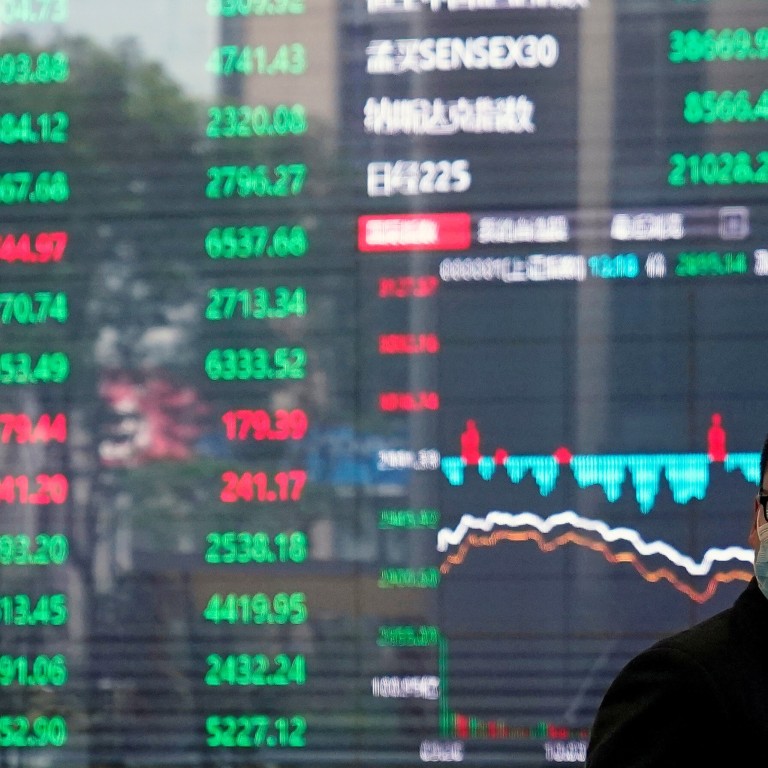
China must reform financial markets to ward off US financial sanctions, think tank urges
- China Finance 40 Forum group of senior Chinese regulatory officials and financial experts call for more cooperation with United States to avoid escalation of bilateral conflict
- Bigger, more open financial markets would attract foreign investors, blunting US efforts to sanction China financially, group says
China should make its own financial markets big enough and open enough to foil any attempt by the United States to decouple financially, according to a semi-official Chinese research group.
“[We] must firmly oppose and properly handle the United States’ long-arm jurisdiction [of applying US law outside its borders] and financial sanctions, and in the meantime make contingency plans against extreme conditions,” according to a report excerpt released on the group’s social media account.
The Beijing-based organisation has links with Wall Street banks and American think tanks, and it has served as an important platform for dialogue about ongoing trade tensions. For instance, its delegation paid visits in November to the Office of the US Trade Representative and the US Department of Commerce in Washington after bilateral trade talks stalled, and tried to rally American support for an online seminar with the Peterson Institute for International Economics in April.
The just-released report highlights the latest efforts by Beijing to keep bilateral relations from deteriorating further in the run-up to the US presidential election on November 3.
The CF40 report, like other recently released studies, suggested a cooperative approach to manage bilateral differences, trying to appeal to US investors using China’s growth prospects while addressing some of the concerns of US regulators.
“We’ll use higher-level financial opening up to counter the increasingly complicated international environment, and strive for mutual benefits … We also need to strengthen financial regulatory capability, international cooperation and coordination,” the report said.
This year’s research was led by some heavyweight officials and researchers, including Xiao Gang, former chairman of the China Securities Regulatory Commission; Cai Fang, vice-president of the Chinese Academy of Social Sciences, who gave President Xi Jinping advice last week on the nation’s next five-year plan; and Wang Xin, head of the People’s Bank of China’s research bureau.
Xiao, who stepped down from the top securities regulatory position after the 2015 stock rout, warned that the rising bilateral rivalry could erode existing financial connections.
“Our financial institutions could face long-arm jurisdiction and even economic sanctions. Some executives could also be sanctioned,” he warned at Sunday’s media briefing.
“These could happen or are happening,” Xiao said. “Under the current situation, we should not only keep fighting, but also make good preparations by developing our own financial markets. Building a super-large financial market can lower the possibility of financial decoupling.”
Lu Lei, deputy head of the State Administration of Foreign Exchange, said China’s financial resilience amid the pandemic and massive global monetary easing had laid a foundation for more foreign participation, but deeper reforms of the country’s financial infrastructure are needed to help facilitate their entry.
“Why is the [foreign] proportion [of Chinese securities ownership] not high? Is our infrastructure – such as the payments, settlement, regulation and legal system – suitable for a more international market? This is what we should consider,” he said at the briefing.

